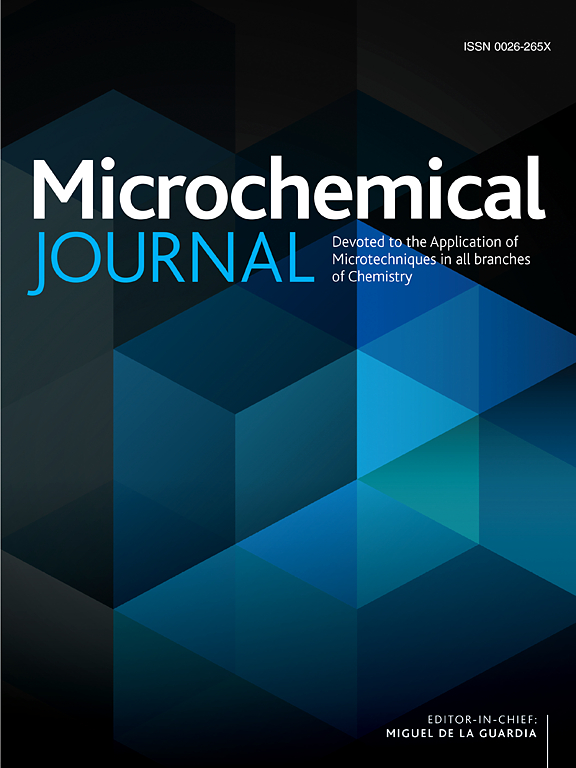基于共价有机框架(COFs)的传感器:在环境监测、食品安全和生物医学检测方面的进展
IF 4.9
2区 化学
Q1 CHEMISTRY, ANALYTICAL
引用次数: 0
摘要
共价有机框架(COFs)是一类开创性的多孔晶体材料,由于其独特的结构优势,在传感应用中引起了相当大的关注。这篇综述系统地检查了COFs传感器在三个关键领域的最新进展。特别是在环境监测方面,讨论了它们在重金属离子、有机污染物检测、食品安全等方面的应用。分析了COFs传感器通过独特的荧光猝灭和比色机制来识别农药残留和微生物污染物。生物医学部分强调了COFs平台通过创新的信号放大策略对疾病生物标志物进行超灵敏检测的重要性。除了具有卓越的分析性能外,这些COFs传感器还具有变革性的实用优势,包括可现场部署操作、可回收性以及与其他设备的集成。COFs传感技术的发展不仅可以为紧迫的检测挑战提供直接的解决方案,而且为设计具有更高选择性、稳定性和多功能性的下一代智能传感器建立了新的范例。本文章由计算机程序翻译,如有差异,请以英文原文为准。

Covalent organic frameworks (COFs)-based sensors: advances in environmental monitoring, food safety and biomedicine detection
Covalent organic frameworks (COFs) represent a groundbreaking class of porous crystalline materials that have attracted considerable attention in sensing applications due to their unique structural advantages. This review systematically examines the recent advances in COFs sensors across three critical domains. Specially, for environmental monitoring, their deployment in the detection of the heavy metal ions and organic pollutants, in the food safety applications were discussed. COFs sensors for the identification of the pesticide residues and microbial contaminants through the distinctive fluorescence quenching and colorimetric mechanisms were also analyzed. The biomedical section highlighted the importance of the COFs platforms for ultrasensitive detection of disease biomarkers via the innovative signal amplification strategies. Beyond the demonstrated superior analytical performance, these COFs sensors offer the transformative practical advantages including the field-deployable operation, the recyclability, and the integration with other devices. The development of COFs sensing technologies can not only provide the immediate solutions for pressing the detection challenges but also establish a new paradigm for designing the next-generation smart sensors with the enhanced selectivity, stability and multifunctionality.
求助全文
通过发布文献求助,成功后即可免费获取论文全文。
去求助
来源期刊

Microchemical Journal
化学-分析化学
CiteScore
8.70
自引率
8.30%
发文量
1131
审稿时长
1.9 months
期刊介绍:
The Microchemical Journal is a peer reviewed journal devoted to all aspects and phases of analytical chemistry and chemical analysis. The Microchemical Journal publishes articles which are at the forefront of modern analytical chemistry and cover innovations in the techniques to the finest possible limits. This includes fundamental aspects, instrumentation, new developments, innovative and novel methods and applications including environmental and clinical field.
Traditional classical analytical methods such as spectrophotometry and titrimetry as well as established instrumentation methods such as flame and graphite furnace atomic absorption spectrometry, gas chromatography, and modified glassy or carbon electrode electrochemical methods will be considered, provided they show significant improvements and novelty compared to the established methods.
 求助内容:
求助内容: 应助结果提醒方式:
应助结果提醒方式:


